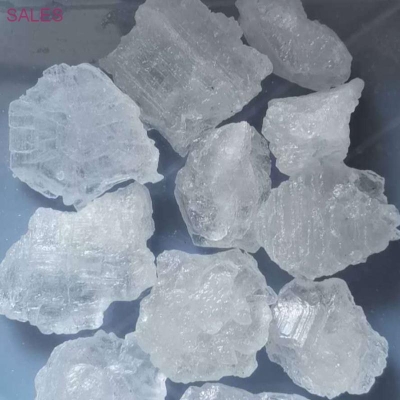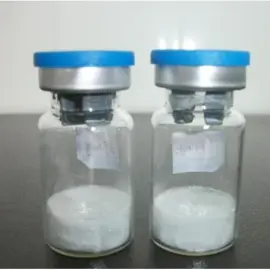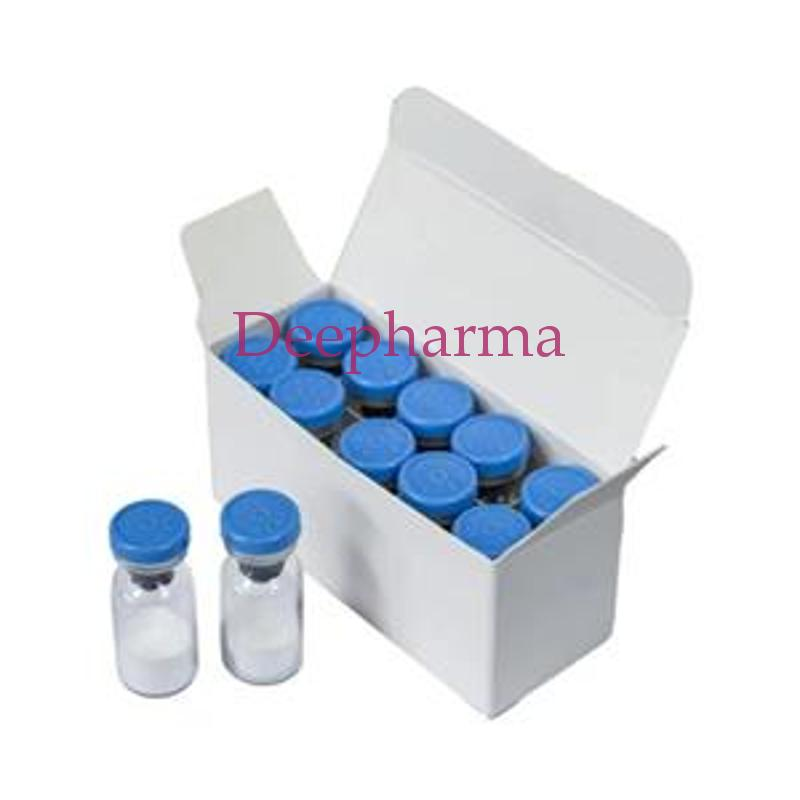Domestic anti-tumor drug market: the growth of botanical drugs is fast, the potential of traditional Chinese medicine preparations is great, and monoclonal antibody drugs will be the biggest bright spot!
-
Last Update: 2015-12-02
-
Source: Internet
-
Author: User
Search more information of high quality chemicals, good prices and reliable suppliers, visit
www.echemi.com
Source: according to the IMS data of Xinhua News Agency on December 2, 2015, from 2010 to 2014, the compound growth rate of the global anti-tumor drug market was 6.5%, among which the compound growth rate of the emerging market led by China was as high as 15.5%; in 2014, the global anti-tumor drug market scale was US $100 billion, which will increase to US $150 billion in 2020, with a compound growth rate of 6% With the promotion of small molecule protease inhibitors and monoclonal antibodies, especially in recent years, immunotherapy is expected to become the mainstream method of anti-tumor, and the global market of anti-tumor drugs will continue to expand in the future At present, there are many kinds of anti-tumor drugs in China with different growth rates Antitumor drugs include anti metabolism, plant, alkylating agents, antitumor antibiotics, platinum, hormones, monoclonal antibodies, protein kinase inhibitors, immunomodulators and traditional Chinese medicine preparations In addition to adjuvants such as immune agents, the market share of antimetabolic agents is the largest and the growth is relatively stable; the market scale of plant agents ranks the second, and it can still maintain rapid growth in the future; the growth of alkylating agents, antitumor antibiotics and platinum drugs slows down in recent years Monoclonal antibodies will be the biggest growth bright spot in the future, and traditional Chinese medicine preparation has great growth potential in the field of tumor adjuvant There are many kinds of anti-tumor drugs, and a single variety is mostly aimed at different disease areas With the continuous expansion of the market scale of anti-tumor drugs and the increase of the indications of some existing varieties, as well as the research and development of new drugs such as monoclonal antibodies, the heavyweight new anti-tumor drugs are coming out Characteristics of foreign markets: the overwhelming momentum of monoclonal antibodies data: Top 10 of the best-selling drugs accounted for 3 seats, and the total sales volume of rituximab, trastuzumab and bevacizumab reached more than 20 billion US dollars From the perspective of global sales structure of anti-tumor drugs, monoclonal antibodies and protease inhibitors dominated the market, accounting for 65% of the whole anti-tumor drug market Traditional drugs account for a relatively low proportion of sales due to their low price The global anti-tumor drug market is largely driven by innovative drugs The continuous emergence and promotion of new drugs, as well as the continuous expansion of original products in terms of indications, make the market expand rapidly In 2014, the top 10 drugs among the top 10 best-selling brands in the world had sales of more than 80 billion US dollars Among them, cancer treatment drugs accounted for three seats, respectively, rituximab (rituximab), bevacizumab (Avastin) and trastuzumab (Herceptin) The sales volume of the three drugs totaled more than 20 billion US dollars, accounting for nearly three components of the world's top 10 products Roche is a well deserved leader in the field of anti-tumor drugs According to the statistics of global best-selling drugs, in 2014, the amount of drugs used in the top 10 anti-tumor products in the world was 46.6 billion US dollars, in 2005, the amount of drugs used was 10.8 billion US dollars, the market grew 4.3 times in 9 years, and the compound growth rate from 2005 to 2014 was 19.9% Among them, rituximab, trastuzumab and bevacizumab are the heavyweight products with sales volume of more than 7 billion US dollars; lenalidomide, imatinib and pegafistin are the big products with sales volume of nearly 5 billion US dollars; bortezomib, pemetrexed, abitron and cetuximab are the sales volume of 2-3 billion US dollars; the growth rate is 10.0% over the same period The above products were trastuzumab (12.4%), lenalidomide (14.1%), bortezomib (11.5%) In recent years, the newly launched product abitron has increased by 24.1% compared with the same period, showing outstanding performance At present, the global anti-tumor drugs are rapidly moving towards the era of precision medicine According to the US version of precision medicine plan, the key of precision medicine is gene sequencing, tumor and personalization Among the top 10 best-selling drugs in the world, there are three monoclonal antibody anti-tumor drugs At present, the most mature field of precision medicine is mainly anti-tumor drug treatment represented by targeted drugs Because the side effects of monoclonal antibody anticancer drugs are small and the targeting is better, the monoclonal antibody drugs will still be the most important field to lead the development of anticancer drugs Characteristics of domestic market: traditional drugs dominate the world data: the proportion of antimetabolic, botanical and alkylating drugs is more than 50%, of which, the proportion of botanical drugs is as high as 19.3%, compared with the global market, the domestic anti-tumor drug market is relatively conservative In foreign countries, monoclonal antibodies dominate, while traditional drugs dominate in China, with over 50% of them being antimetabolic, botanical and alkylating drugs Another huge difference in the domestic and foreign markets is that the proportion of plant drugs in the domestic market is as high as 19.3%, mainly including paclitaxel, docetaxel and other major varieties According to the data of 22 sample hospitals in China, the market scale of anti-tumor drugs and immunomodulators increased from 4.87 billion yuan in 2005 to 24.84 billion yuan in 2014 Among them, the growth rate from 2007 to 2012 remained above 20%, maintaining a rapid growth rate for five consecutive years; from 2013 to 2014, the market of antineoplastic drugs and immunomodulators slowed down From 2005 to 2013, the compound growth rate of the purchase amount of antineoplastic drugs and immunomodulators was 20.0%, and the overall market growth rate in 9 years was 5.1 times, higher than the overall market growth rate in China With the increasing incidence rate of cancer, antitumor drugs and immunomodulators have become the first drugs in the sample hospitals In 2014, the top 10 anti-tumor drugs and immunomodulators in China's sample hospitals were 5 each, involving 2 botanical drugs, 1.39 billion paclitaxel, a growth rate of 15.1%, 1.03 billion docetaxel, a growth rate of 0.8%; 2 anti metabolic drugs, 0.99 billion pemetrexed, 0.71 billion tegio, a growth rate of respectively 20.1% and 21.4%; one alkylating agent, oxaliplatin 720 million yuan, with a growth rate of 5.6%; five immunostimulants involved, thymopentin 1.32 billion yuan, thymosin α 1.97 billion yuan, human gamma globulin 780 million yuan, Kangai 780 million yuan, recombinant human granulocyte colony stimulating factor 710 million yuan, with a growth rate of 9.5%, 10.4%, 23.6%, 14.4% and 0.7%, respectively Pemetrexed and tegio are the most prominent anti-tumor drugs in the domestic market, while human immunoglobulin and Kangai are the most prominent immunomodulators Among them, Kangai is a large variety of traditional Chinese medicine From the data of sample hospitals, the domestic anti-tumor drug market is still dominated by cytotoxic drugs such as alkaloids and anti metabolism drugs, while small molecule targeted drugs are growing rapidly According to the data of 22 sample hospitals in China, in 2014, the top 10 enterprises accounted for 8.02 billion yuan of drug use, accounting for more than 30% of the domestic market for antineoplastic drugs and immunomodulators The top five enterprises are: Jiangsu Hengrui Pharmaceutical Co., Ltd 1.13 billion yuan, Shandong Qilu Pharmaceutical Co., Ltd 1.07 billion yuan, Shanghai Roche Pharmaceutical Co., Ltd 1.06 billion yuan, Jiangsu Nanjing Cisco Pharmaceutical Co., Ltd 950 million yuan and Novartis company 85.0 million yuan The domestic enterprises with outstanding performance are Novartis, Jiangsu Nanjing Cisco pharmaceutical, Shandong Qilu pharmaceutical and Jiangsu Haosen pharmaceutical Characteristics of TiNi: hot and worrying data: the domestic market scale of such drugs increased from 53.39 million yuan in 2005 to 1.49 billion yuan in 2014, with a compound growth rate of 44.7%, and the overall market grew by 27.8 times in 9 years TiNi is a new kind of biological targeted tumor drugs At present, 12 TiNi products are common in the market of China, including imatinib, gefitinib, erlotinib, sorafenib, exetinib, sunitinib, czotinib, nilotinib, dasatinib, lapatinib, apatinib and acetinib According to the data of 22 sample hospitals in China, the market scale of TiNi drugs in China increased from 53.39 million yuan in 2005 to 1.49 billion yuan in 2014, with a compound growth rate of 44.7% The overall market growth in 9 years was 27.8 times, far higher than the overall market growth rate in China, with a year-on-year growth of 38.2% in 2014 Among domestic TiNi drugs, the top five products in 2014 were imatinib, gefitinib, erlotinib, exetane and sunitinib, all of which were worth more than 100 million yuan Among them, the amount of imatinib has exceeded 500 million yuan, an increase of 16.5% over the same period, ranking 64th in 2014 from 67th in 2013 In 2014, the products with rapid growth were ektini and dasatinib, which were more than doubled compared with the same period, and the growth rate was high-profile According to the data on CFDA's official website, there are currently seven TiNi import enterprises, namely, imatinib and nilotini of Novartis; gefitinib of AstraZeneca; solafeni of Bayer; erlotini of Roche; sunitini, czotini and axitinib of Pfizer; dashatini of Bristol Myers Squibb; lapatini of GlaxoSmithKline By the end of October 2015, five domestic companies have listed TiNi products, namely: Zhejiang Beida in 2011, ektini; Zhengda Tianqing and Jiangsu Haosen in July 2013, imatini generic; Ouyi Pharmaceutical Group in October 2014, imatini was approved; Zhengda Tianqing in September 2013, dashatini; Jiangsu Hengrui in 2014 In October 2004, apatinib mesylate was listed on the market TiNi is a hot spot in the field of anti-tumor in recent years Due to the rapid increase in the number of products under research and application in China, it raises concerns about the development of specific varieties in this field Whether the future products can continue to have good performance depends on the clinical advantages of different TiNi drugs on the one hand, and on the other hand, the market strategy, positioning and promotion ability of the enterprise will be able to develop the market of specific varieties Exhibition plays a decisive role Features of immunosuppressant: huge data of hot varieties: it is predicted that the global market scale of PD-1 / PD-L1 antibody will reach 35 billion US dollars in 2020, and the compound growth rate will reach an amazing 61% in 2015-2020 In 2014, the hottest antibodies are the star PD-1 monoclonal antibody for immunotherapy of BMS and Merk The monoclonal antibody of BMS was approved for advanced melanoma in Japan, and the monoclonal antibody of Merk was approved for advanced melanoma in the United States Roche's antibody to PD-L1, a ligand of PD-1, is also in clinical trials and will soon be approved for clinical use; AstraZeneca's medi4736 is also an antibody to PD-L1 According to the statistics of global best-selling drug data, the sales volume of Bristol Myers Squibb's ipilimumab in 2011 was US $360 million, 2012 was US $710 million and 2013 was US $960 million At present, cancer immunotherapy has new star products, among which pembrolizumab of mosadon and nivolumab of Bristol Myers Squibb are outstanding representatives On September 5, 2014, MSD announced that its company's keytruda (pembrolizumab) became the first PD-1 monoclonal antibody approved by FDA, and the indication of the product was unresectable or metastatic melanoma On July 7, 2014, opdivo (nivolumab) of Bristol Myers Squibb was approved by PMDA to be listed in Japan, mainly used for the treatment of advanced melanoma, and became the first PD-1 inhibitor approved by major regulatory agencies On March 4, 2015, the FDA approved nivolumab for the treatment of metastatic squamous non-small cell lung cancer that develops during or after platinum based chemotherapy According to Citi's in-depth report, immunotherapy market is predicted to be empty
This article is an English version of an article which is originally in the Chinese language on echemi.com and is provided for information purposes only.
This website makes no representation or warranty of any kind, either expressed or implied, as to the accuracy, completeness ownership or reliability of
the article or any translations thereof. If you have any concerns or complaints relating to the article, please send an email, providing a detailed
description of the concern or complaint, to
service@echemi.com. A staff member will contact you within 5 working days. Once verified, infringing content
will be removed immediately.







